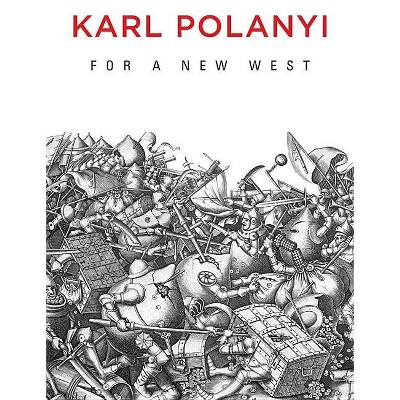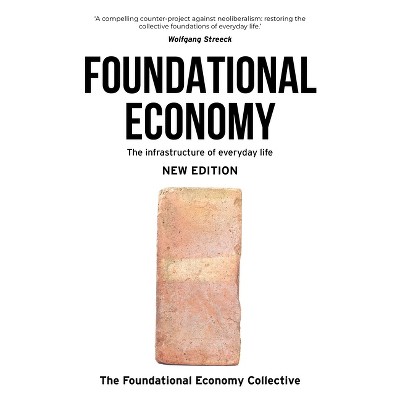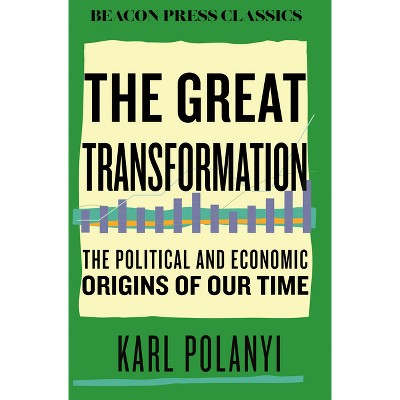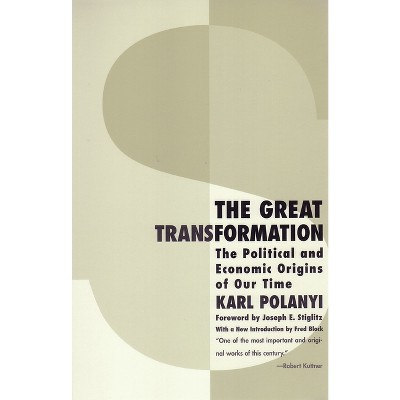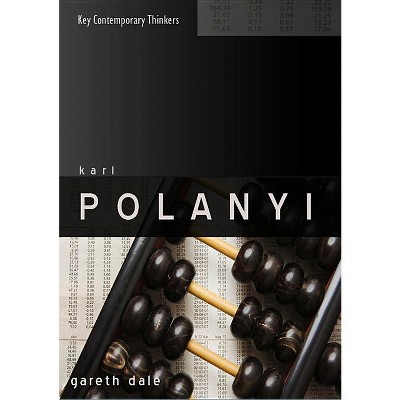Sponsored

Karl Polanyi and Twenty-First-Century Capitalism - (Geopolitical Economy) by Radhika Desai & Kari Polanyi Levitt (Paperback)
Pre-order
Sponsored
About this item
Highlights
- This book extends the boundaries of our understanding of Karl Polanyi's life and work.
- About the Author: Radhika Desai is Professor at the Department of Political Studies at the University of Manitoba Kari Polanyi Levitt is Honorary President of the Karl Polanyi Institute of Political Economy at Concordia University
- 320 Pages
- Philosophy, Political
- Series Name: Geopolitical Economy
Description
About the Book
This book extends the boundaries of our understanding of Karl Polanyi's life and work. The contributors consider the links between Polanyi's ideas and income inequality, world systems theory, and comparative political economy.Book Synopsis
This book extends the boundaries of our understanding of Karl Polanyi's life and work. The contributors consider the links between Polanyi's ideas and income inequality, world systems theory, and comparative political economy.From the Back Cover
As the neoliberal order decays and morbid symptoms such as far right movements appear, Karl Polanyi is becoming more relevant than ever. Best known for The Great Transformation, Polanyi anticipated twenty-first century civilizational challenges of ecological collapse, social disintegration, and international conflict, warning that the unbridled domination of market capitalism would engender nationalist protective counter-movements.
Radhika Desai and Kari Polanyi Levitt bring together prominent and new thinkers in the field to extend the boundaries of our understanding of Polanyi's life and work, examining why Polanyi's thinking resonates so widely today.Review Quotes
'This book shows just how contemporary the thought of Karl Polanyi is today. Ably organised chapters trace various elements of his thinking, from the famous 'double movement' to his relevance for constructing a better world beyond neoliberal capitalism.'
Ronaldo Munck, Professor of International Development, Dublin City University
Michele Cangiani, former Professor of Economic Sociology, Università Ca'Foscari Venezia, Italy 'This volume testifies that scholarship on Polanyi and Polanyian critique of our times is getting stronger day by day. The fresh insights and the new provocative debates launched in this collection are clear signs of this vitality.'
Attila Melegh, Director of Karl Polanyi Research Center, Corvinus University of Budapest 'This book brings new insights to Polanyi scholarship. Readers are taken on a journey through the evolution of Polanyi's thought and into conversation with him about today's complex societal challenges. The originality of this book is its intersection between the political economy and social philosophy of Karl Polanyi.'
Marguerite Mendell, Professor Emerita, Karl Polanyi Institute of Political Economy, Concordia University 'This book is a treasure trove of ideas and provocations for future work. Even for those who have some doubt about aspects of Polanyi's legacy these diverse chapters show, in a very convincing manner, what a rich contribution he has left for us, including The Great Transformation but going much further and wider than that. At the very least we need to continue our dialogue with Polanyi and his ideas, for our understanding of our current crises and dilemmas will be greatly enriched in the process.'
Marx and Philosophy
About the Author
Radhika Desai is Professor at the Department of Political Studies at the University of Manitoba
Kari Polanyi Levitt is Honorary President of the Karl Polanyi Institute of Political Economy at Concordia UniversityShipping details
Return details
Frequently bought together



Trending Book Pre-Orders






